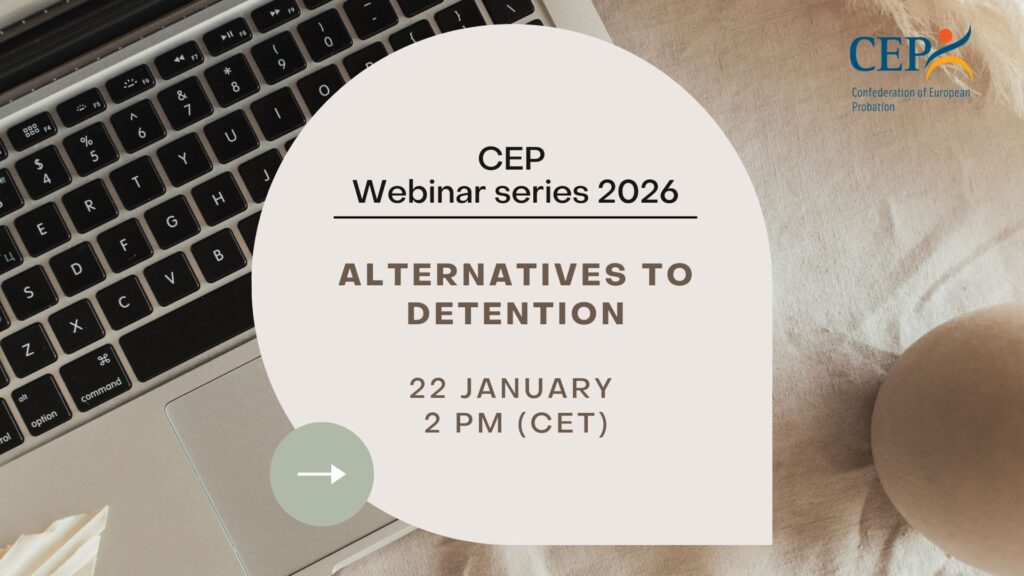Previous Article
News
Oslo Seminar on assessment and pre-sentence reports: Rob Canton looks back
CEP looks back on a successful international seminar on assessment and pre-sentence reports, hosted by the Norwegian Ministry of Justice and Public Security in Oslo, 10th-11th May 2012. Rob Canton, Professor at De Montfort University, UK, attended the event and gives his perspective: “Two different approaches to assessment were represented at the seminar, one that is focused directly on risk assessment and one that recognises that assessment is part of a process of intervention that depends heavily on the relationship between offender and probation officer.”

Assessment
The probation officer’s assessment of an offender is the starting point in all purposeful work. It is a systematic process that the officer uses to help avoid reoffending. Many countries use assessment instruments to guide staff in this process. “I’ve seen,” says Rob Canton, “that these instruments can be of great help because it enables us to keep track of the probation officer’s work. A drawback is that not all risk, need and strength factors can be expressed in a straightforward way. Numerical scores can be misleading and of limited guidance in directing work. Assessment is an exploration as much as it is a discovery.”
Pre-sentence reports
The pre-sentence report is written by a probation officer to help the court with its sentencing decision. “A pre-sentence report can be seen as the shop window to what the probation service does,” explains Rob Canton. “Here the probation service’s work is most visible to courts and this is an opportunity to demonstrate the quality and trustworthiness of probation. If probation is to be a real alternative to custody, courts must have confidence in the service. It is good to raise the issue of quality because in the UK, for example, the pressure is on to produce quick reports. The mounting demand can result in ‘tick box questionnaires’ in which aspects of the work get lost.”
Risk vs. relationship
The seminar was attended by 74 participants from 22 different countries. The international character of the event was reflected in the plenary sessions and workshop topics with differing views on pre-sentence reports and assessment. In this session, he focused on the Probation Rules’ requirements about assessment, especially the assessment of risk. “There are instruments such as OASys in the UK (presentation of Mr. Philip Howard), that attempt to assess the risk that the offender poses. Such predictions are very useful for the probation service and policy makers. I think, however, it does not stop there because the assessment is not an end in itself, it is a guide to probation practice. We do not want to predict crimes, we want to prevent them.”
Jan-Erik Sandlie, deputy DG of the Norwegian Ministry of Justice, presented BRIK, the newly developed assessment instrument. It is based on the idea that the appropriate help and services can only be offered after the resources and need of the offender are identified. “This makes it a striking contrast to Anglo-American approaches to assessment,” says Rob Canton, “because risk assessment is no longer the primary goal.”
Pre-trial custody
On the second day, the programme was opened by Professor Anthea Hucklesby of the University of Leeds, UK. In her presentation, she spoke about pre-trial detention. In Rob Canton’s opinion, she raised a topic that deserves more attention from CEP because in reducing pre-trial detention, custody rates can be brought down. “It was instructive to see that in countries with relatively low custody rates, a significant part of the prison population has not yet been sentenced. In Italy it was even up to 82%! Anthea challenged probation services to bring down the numbers by providing alternatives to custody on remand and improve the criminal justice system in this way.”
Seminar evaluation
The evaluation forms of the seminar were returned with positive feedback from the international guests. The opportunity to network was often mentioned, sometimes requesting more of it. Rob Canton is quick to say that these opportunities are an essential element of a successful seminar: “I always enjoy attending CEP events because I get to make new contacts in a more informal way. I think that these connections are at the basis of European cooperation based on mutual respect.”

Related News
Keep up to date with the latest developments, stories, and updates on probation from across Europe and beyond. Find relevant news and insights shaping the field today.
New

CEP Events
CEP activity calendar 2026
20/01/2026
As we begin the new year, we would like to thank all CEP members, partners, and participants for your continued engagement and valuable contributions. Your involvement plays an essential role in shaping CEP’s work and activities.
We are pleased to share the CEP calendar for 2026, which provides an overview of the events planned for the year ahead. We look forward to continuing our collaboration and welcoming you to upcoming CEP activities throughout the year.
Thank you for being part of the CEP community.
New

CEP members, Gender-based violence
Interventions Alliance’s Eden House Recognized as Outstanding
15/01/2026
CEP is delighted to share that Eden House, an Interventions Alliance residential service for women with high-risk or complex needs on probation, has been rated “Outstanding” overall by HM Inspectorate of Probation. In 2022, Eden House was honored with the CEP Public Protection Award. Our sincere congratulations to the team for this remarkable achievement.
New

Education and Training
The Judicial Training Dashboard
14/01/2026
The European Training Platform (ETP) is a search tool for justice professionals. You can find self-learning materials on a great variety of EU law practice areas and related topics, as well as links to training providers’ homepages and course catalogues.
New

Technology
Communication on DigitalJustice@2030
13/01/2026
The EU’s competitiveness will increasingly depend on the digitalisation of all sectors, which will drive investment. Digitalisation and the deployment of artificial intelligence (AI) will be essential to the ability of public authorities to deliver high-quality public services, notably also in the field of justice. Europe’s Digital Decade is underway with the ambition that by 2030 the EU has all key public services available online. The ultimate aim will be to increase the efficiency of public services by making them digital by default, stimulating productivity.
New

Alternatives to pre-trial detention, CEP Events
Webinar on Alternatives to Detention – CEP Webinar Series 2026
13/01/2026
CEP is pleased to invite you to the first webinar in the CEP Webinar Series 2026, taking place on Thursday, 22 January 2026, at 14:00 CET. This webinar will introduce a unique programme developed by the Meuse Probation Service, which was awarded the CEP Award 2025 in the category of Rehabilitation and Social Inclusion (The Sue Hall Award).
New

Alternatives to pre-trial detention, CEP Events
CEP Webinar Series 2026
12/01/2026
In 2026 CEP launches a series of short webinars that will take place every third Thursday of January, March, May and November.
We sincerely invite all probation practitioners, social workers, managers, policy makers, researchers, students as well as colleagues from partners organisations to join and share your knowledge with us.
Subscribe to our bi-monthly email newsletter!
"*" indicates required fields
- Keep up to date with important probation developments and insights.

